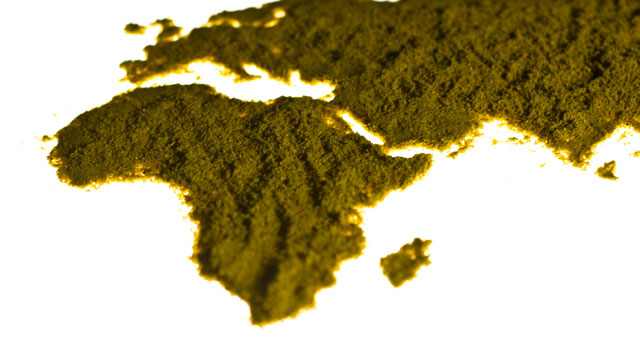
The historic combination of favourable macroeconomic conditions for Africa began to reverse in 2013, with a weakening of most commodity prices as well as the taper tantrum in the global financial markets. Over the course of last year the decline in commodity prices has continued and even accelerated, and in December, the US Federal Reserve finally announced its first increase in interest rates for nearly a decade.
Two to three years of falling commodity prices has now left governments grappling with meaningful current account and fiscal deficits. Previous economic darlings, such as Nigeria and Angola — 18 months on from the oil price starting to fall — are now in distress. Economic conditions in, for example, Zambia are arguably even worse. Has the gloss come off the Africa rising narrative?
The early part of this decade and the latter period of the last decade represented a golden age for the frontier economies of Africa. These years represented a unique combination of circumstances: high and increasing commodity prices, and at the same time low interest rates accompanied by unprecedented monetary easing pushing cash into emerging and frontier markets.
Commodity price rises are generally a strong positive for countries in Southern, Central and West Africa, the majority of which are net exporters of commodities (the exception is many of the East African economies). Traditionally, these two factors (commodity prices and the global interest environment) work in opposite directions. Add to this the positive backdrop of significant sovereign debt relief at the end of the 1990s and the beginning of the 2000s, and all the factors were in place for a boom in deal making in Africa.
This peaked in 2012 and 2013, over which period the total value of M&A and private placements in the rest of Africa exceeded the value of the transactions in South Africa comfortably: some US$63bn in aggregate for the two years compared with $29bn in South Africa, according to Standard & Poor’s.
Historically South Africa, formerly the largest economy in Africa but only a portion of aggregate continental GDP, has seen transaction volumes higher or at parity to the rest of the continent put together. Transaction values in the rest of Africa in 2012 and 2013 were buoyed by large transactions in oil and gas (eg the acquisitions by Anadarko and Marathon) and large acquisitions from South Africa into Africa (for example, the Absa/Barclays Africa consolidation).
Tabled have turned
However in the last two years, the tables have turned and volumes in South Africa have exceeded the rest of the Africa. When reading the recent dreadful headlines at home it is important to remember that the bulk of the rest of the continent is suffering from similar challenges. A key difference is that South Africa benefits from much greater economic diversification and a much deeper and broader financial system and capital market.

From our experience in the last couple of years, a very high degree of economic volatility as well as policy uncertainty (for example foreign exchange regulations), has created significant challenges to closing transactions in Nigeria, Ghana and Zambia — much more so than in South Africa.
Typically cited challenges on transacting in the rest of Africa include greater economic volatility, perceived weaknesses in governance in the private and public sectors, uncertain regulatory environments and a narrow base of professional services firms such as accountants and lawyers. To say that corporate governance is per se weaker in the rest of the continent than in South Africa is probably unfair. Rather there is lower penetration of institutional ownership in the rest of the continent and a greater proportion of the economies remain in the control of family businesses with less sophisticated governance structures.
MTN, Tiger Brands
Recent discussions with corporate South Africa, the MTN Nigeria deregistration fine, as well as the writedown by Tiger Brands of the Dangote Flour acquisition, has led to a much more conservative attitude towards investment in Nigeria. Board rooms in South Africa have been reassessing whether they really have a competitive advantage in Africa’s largest economy. Nevertheless we continue to believe in the medium-term story of cross-border consolidation in Africa, and that the recent headwinds to this theme will prove transient.
Perhaps unsurprisingly, transaction values for the whole continent over the last two years are down by about half versus the peak period, bucking the trend of global record M&A volumes. In these more challenging times, most of the larger transactions that have been completed feature secular themes — for example, the creation and consolidation of an independent telecommunication towers sector, or downstream integration in the fertiliser sector by the major upstream producers.
Over the past five years, there have been 30 transactions globally (about a quarter of which were in Africa) for a total value of about $5bn where fertiliser blending and marketing businesses have been acquired by upstream producers of primary nutrients or global traders. These acquisitions have been motivated by acquiring sticky distribution channels for own plant product; weaker pricing and tighter supply-demand conditions may have actually provided additional motivation for these deals.
Globally, the Norwegian group Yara has been the single most acquisitive party, and recently acquired Greenbelt Fertilisers in Zambia in one the largest fertiliser transactions in African history. Separately, private equity in Africa is expected to continue to be a strong driver of transactions with over $8bn raised by Africa funds in aggregate from 2012 to 2015 (source: EMPEA). This fact, combined with weak conditions in the public equity markets and declining bank liquidity, may herald a flurry of private equity deals in 2016 and 2017.
The depreciation of the rand can provide advantages for South African exporters, including professional services. The challenges of the remaining Africa investment banking teams in London in this period of slow moving deal pipelines are exacerbated by a cost base of 2-3x the equivalent costs in Johannesburg. Notwithstanding the recent upheavals in the political economy in South Africa, multinational companies and foreign investors are still choosing Johannesburg as their Africa hub — in greater number than in Nairobi, Lagos or Casablanca. From a deal-making perspective, this bodes well for the medium term.
- Higenbottam is MD at Verdant Capital
- This article first appeared in DealMakers, South Africa’s quarterly M&A magazine, and is republished with permission from Moneyweb




